#confucian
Text
Day 11 of the Hyakunin Isshu: Translating Ancient Japanese Poetry: Unraveling the Essence of Samurai Takamura
Today, we’re going fishing with Sangi Takamura (参議篁). So to speak…
Twitter
Patreon
GitHub
LinkedIn
YouTube
わたの原 (Wata no hara) – Across the open sea,八十島かけて (Yaso-shima kakete) – Spanning eighty islands,こぎ出ぬと (Kogi idenu to) – Rowing forth,人には告げよ (Hito ni wa tsugeyo) – Tell those whom you meet,あまのつり舟 (Ama no tsuribune) – The boat of fishermen from Ama.
In translating Sangi Takamura’s poem,…
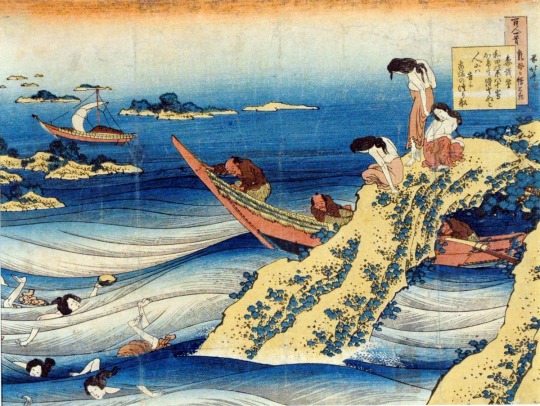
View On WordPress
#Art of Translation#buddhism#Confucian#Cultural Equivalence#daoism#Dynamic Equivalence#East Asian philosophy#japan#japanese#japanese poetry#Language Artistry#language studies#Lawrence Venuti#Linguistic Harmony#localizer#Multilingualism#philosophy#poet#poetic#poetics#Poetry#Preserving essence#Transcreation Approach#Translating Art#Translation Philosophy#translator#Translator Scholars#Translators Journey#Walter Benjamin
3 notes
·
View notes
Text
2013: Critique of Historical Materialism in PRC Archaeology
Lately I’ve been reading Chinese articles on archaeological discoveries and how they have been changing the accepted picture of China’s past. Stressed also is historical materialism that informs how those discoveries are understood by the Party and apparently also by the archaeologists that is has been funding.
2020: Xi Jinping to Politburo Collective Study Session on Chinese Archaeology
2022:…

View On WordPress
#academic#Africa#archaeology#archetype#China#Chinese#civilization#Classic of Mountains and Seas#Communist Party#Confucian#Confucianism#culture#顧頡剛#folklore#Gu Jiegang#historical materialism#historicism#historiography#history#ideology#literature#Mengzi#myth#mythology#politics#PRC#propaganda#prototype#Shan Hai Jing#Tongji University
1 note
·
View note
Text
I saw a post about this so now I'm curious
New poll with more options if you want there
please consider reblogging for a larger sample size unless you're planning to say something that's anti-theistic
#religion mention#mention of religion#my poll#poll#tumblr poll#religion#theology#judaism#catholiscism#christianity#islam#shintoism#buddhism#hinduism#taoism#sikhism#shinto#jewish#confucianism#caodaism#< i know there's more religions#but these are (to my knowledge) the most popular around the world
8K notes
·
View notes
Text
Q4: The questions also about, you mentioned about
America putting their hope in GOD, then nation, and
then the self. I know you've only been in Hong Kong
for a short time, but you've been to Asia before..
I mean where do you think hope is being placed in..
A4: Well that's a very interesting question, because
there is a sense in which Chinese culture, you might
go way back. Now if you go back in Western culture
300 years, you've gone back to the beginning [58:01]
Evidently, I can't do that in China. [58:14]
So maybe we ought to say there is some analogy
because surely in your Confucian past, though
obviously is not Christianity, & the Chinese idea
of Heaven is not the Christian idea of Heaven..
But it does seem to me, that you might say:
There was a time, the idea of Heaven & the way
Confuscious defined Heaven & living a life that
conformed with Heaven.
It's very close to what the Greeks & the Romans
called the logos, kind of rational & moral order
behind the universe. [58:50]
So there was a time in Chinese Culture, where the
main hope was you conform your life to Heaven &
then there was a 2nd stage in Chinese culture is a
little similar to the American 2nd stage. [59:07]
1st stage for Americans was GOD & China Heaven,
2nd stage was Nation, well you do have this.
You do have Socialism & Marxism. [59:14]
You have this idea, where we are going to take this
Western Philosophy & we are going to understand
life completely in light of, we are going to create a
nation & we are going to have Socialism, that is not
only good for us—a hope for the world. [59:33]
America very similar.
America always said, “We have this democracy that
makes us so great. And we are creating this great
nation & we are going to make everyone as great as
we are. [59:43]
A similar kind of confidence that the way in which
we were building a nation was the right way for all
people. [59:50]
And I do think, that China went through a period
like that. But I have to say that Western Consumer
Capitalism puts so much emphasis on the self, the
individual happiness, the fulfilment, the making
money.
And I can see that in the East it's not as strong as it is
in the West; & there might be some rough analogies
that I know nothing.
What in the world am I doing in HKU?
I haven't even taken a course on Chinese History.
So it's not fair, but I do see some rough analogy,
behind: They are very spiritual, & very material;
now they are very individual [1:00:20-1:00:30]
Spiritual, then collective material, then the individual,
but I also think that Andrew Delbanco is right—you'd
probably also find that a fascinating book.
I don't think you can have a cohesive & coherent society
when everyone's basically saying, “I'm going to get mine”
And that's all that matters. [1:00:47]
[Yeah I mean HK is a big mixture of different..]
That's why it is endlessly fascinating.
[It's quite difficult] It really is. [1:00:53]
Hope Beyond World P:1,2,3,4,5,6,7,8,9,Q1,Q2,Q3,𝗤𝟰,Q5,Q6,Q7,Q8,Q9,
#Q4#Hope Beyond World#hope in GOD#national religion#Socialism#Marxism#Western Philosophy#hope for the world#democracy#Confucian#China#Hong Kong#HKU#Andrew Delbanco
0 notes
Text
5 Surprising Things I Learned From Babysitting
Parents often joke, “At some point, I just wanna throw the kids away.” I don’t know about you, but it feels like riding a rollercoaster when living with kids. You never know what’s going to be next, plus most of the time, you can’t just scream through it. I enjoy playing with kids, even if it can be daunting, but it’s also an opportunity to learn and grow. Here are five surprising things I…

View On WordPress
#5 Surprising Things I Learned From Babysitting Kids#babysitter#babysitter experience#babysitting#Being Adaptable#Confucian#Effective Communication#filial piety#How To Educate Children#infrontofmi#parenting#parenting style#Patience Is The Key#personal development#personal growth#rasing kids#spiritualtalk#Things I Learned From Babysitting#Thinking Outside The Box#what i learned in babysitting#嚴父出孝子#嚴父出孝子,慈母多敗兒。#慈母多敗兒
1 note
·
View note
Text


#fantasy#heavenly#celestial#eternity#chinese mythology#chinese culture#mythology and folklore#asian#confucianism#Virtues#confucian#confucius
1 note
·
View note
Text
I like how one of the few things a good chunk of major religions agree on completely is that pomegranates slap.
Christianity 🩷s pomegranates
Islam 🩷s pomegranates
Judaism 🩷s pomegranates
Buddhism 🩷s pomegranates
Hinduism 🩷s pomegranates
Taoism 🩷s pomegranates
I have yet to find evidence of anti-pomegranate rhetoric in Shinto, Sikhism, Confucianism (which is not really a religion but whatever), or Caodaism.
#random#religions#religion#world religions#taoism#christianity#islam#Judaism#Buddhism#hinduism#shinto#Sikhism#Caodaism#confucianism#pomegranate
662 notes
·
View notes
Text
wuxia and confucianism
Hey. Thought I'd answer the wuxia-confucian question very briefly. I did suggest wuxia being closely knitted to confucianism, but I do understand the other perspective of wuxia being anti-confucian. Quick answer only because I've got little time right now -- might add on to it later!!

confucianism
First the central themes of confucianism:
常 (cháng): Virtues of compassion and courtesy. 仁 (rén)、义 (yì)、礼 (lǐ)、智 (zhì)、信 (xìn)、忠 (zhōng)、孝 (xiào)、悌 (tì) (there are more). These in order in crude translation mean compassion, righteousness, courtesy, wisdom, integrity, loyalty, filial piety, and respect to one's older siblings. These are the main ideas Confucius, the founder of Confucianism, wished to spread through his philosophy.
纲 (gāng): Order. This is about the relationships between people, the filial piety of child to their parents, the relationship between significant others, between friends and teachers, and expanding outwards in the sphere of influence in our circle of life, the patriotism and loyalty of a liege to his lord.
Understand that Confucius came up with these ideas in a time of war. He lived his life traversing different kingdoms and establishing his prominence by getting emperors to trust him as a consultant and employ his school of ideas. As such, these beliefs are very much centred around creating harmony and order in society, and of course entails the respect of commoners and lieges to their lords (because why else would kings employ his beliefs over other schools of philosophy if not so?).
wuxia
Moving on to the wuxia genre, the 侠 (xiá) in wuxia emphasises righteousness. xia, as people, are itinerants and rebels in the fictitious pugilistic society who tire of the power of the aristocracy and seek to use their own, often unlawful ways, to help others through 锄强扶弱 (chú qiáng fú ruò) -- helping the needy and going against the strong (the morals are debatable but that's me trying to sum up wuxia in 5 minutes off the top of my head rip).

conclusions
So I guess that's enough information for you to form your own conclusions, and here's what I think, at the very least.
Against Confucianism -- Subverting the power pyramid. Many of the heroes/xia's in wuxia are lawless rebels. They aren't good, upstanding citizens of the society. Hell, xia was first popularised from 游侠列传 (yóu xiá liè zhuàn) in the Han dynasty records, talking about how a "xia" went against the officials and helped the commoners in the name of righteousness. This goes against the confucian beliefs of respecting your lord and serving the kingdom.* That's why I can understand why some would consider wuxia going against confucianism.
Align with Confucianism -- Righteousness. Ultimately, however, wuxia is about righteousness and nobility and honour, defined by society and commoners and not by royal blood. These values of etiquette, decorum, and nobility were long ingrained in the hearts of all these chinese characters, from when the courtesy and etiquette rules were defined in the Zhou dynasty, and afterwards, from the Han dynasty on, when emperors heavily employed Confucian beliefs in education and throughout society because it helps in rebuilding a harmonious society.
Confucianism is about compassion and righteousness, the staples permeating and defining chinese culture in the last two thousand years, and it is these values that serve as the central impetus of the xia and wuxia genres. People are born into these values; as such they fight against the injustice they see, and thus engenders the lost xia's of every dynasty.

*And well, even Confucius wasn't that dead set on fealty to lords. Confucian highly venerated loyalty, but when the court is corrupt, they acknowledge insurgence over the mindless following of an emperor. This is a story for another day, one I would have to back up with more quotes and citations, but I hope this answered your questions, or even better, let you form some conclusions of your own :)
Confucian philosophy is only one aspect that has correlations/influences over the "xia" genre, there are many other interesting things to say about Taoism and Buddhism as well (e.g. Jin Yong's wuxia classics have quite a bit of Buddhist values in the characters owing to author preferences), it's definitely worth looking up on these things if you're interested!
initially reblogged under the original meta post on wuxia, xianxia, and cultivation differences, but i realised it was too long and would bury the reply, so please don't mind me opening a new post for this again.
feel free to ask and discuss!!
#chinese#cdrama#danmei#philosophy#chinese language#chinese culture#wuxia#cnovel#chinese history#confucius#confucianism#chinese philosophy#fate's meta
407 notes
·
View notes
Text

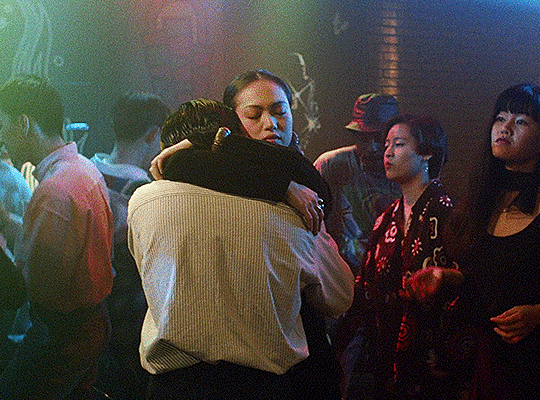



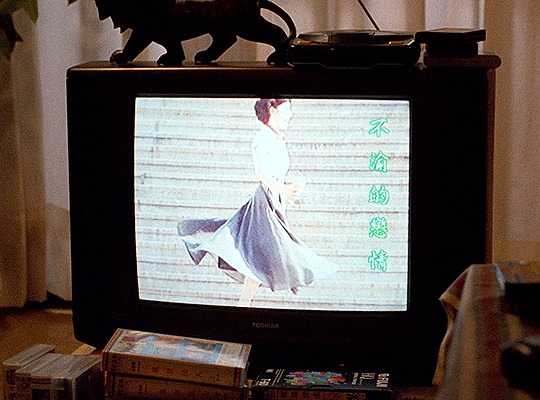

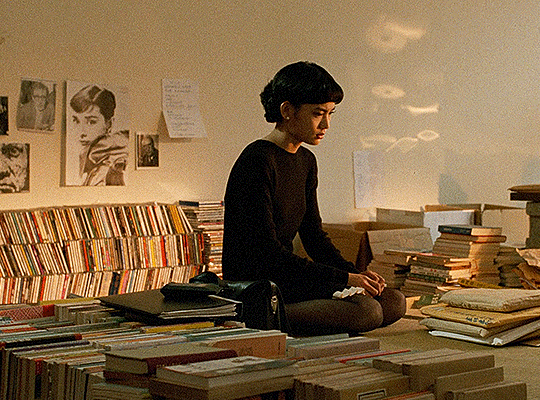
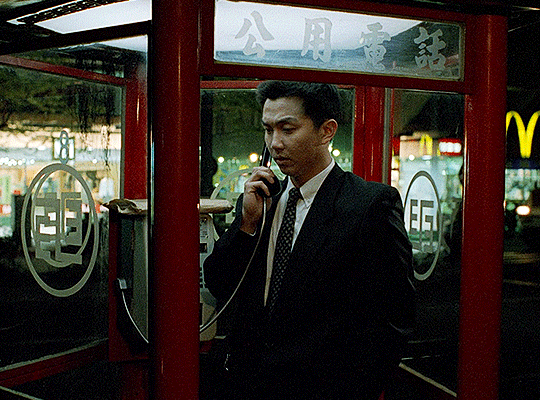
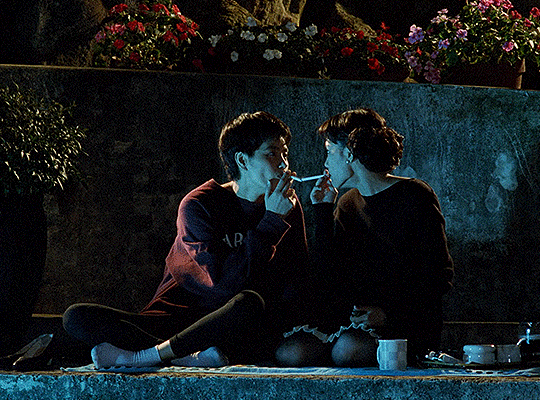
A Confucian Confusion (1994) dir. Edward Yang
#a confucian confusion#獨立時代#edward yang#1990s#taiwanese cinema#90s cinema#90s movies#userhayao#usermandie#worldcinemaedit#dailyflicks#cinemapix#filmedit#filmgifs#moviegifs#*gifs#yang + 4k restoration = <3
316 notes
·
View notes
Text
Sigh
For the last fucking time, THE JEDI ARE NOT CATHOLIC!
They're not based off of the catholic church, that's just people's fanon interpretation (and it's mostly just people projecting their issues with catholicism onto the Jedi), if you actually take a minute to look up what George Lucas' sources and inspirations for the Jedi, you'll find that he based them off of everything EXCEPT christianity, the inspirations for the Jedi being Japanese and East Asian cultures, Arabic ideas (Jedi may be derived from "Al-Jeddi" which means "Master of the Mystic-Warrior way"), Buddhism, Jewish Mysticism, Samurai Bushido, Shaolin Monks, Hinduism, Qigong, Greco-Roman philosophy and mythology, Sufism, Confucianism, Shinto, and Taoism, the only christianity you might be able to say influenced the Jedi is Methodism, since Lucas was a Buddhist-Methodist
Like yes, you can certainly find Jedi beliefs and practices to be similar or parallel to catholicism and Christianity, I have, but that's on you, that's YOUR interpretation
#i say this as a catholic#wooloo-writes#wooloo writes#star wars#sw#pro jedi#in defense of the jedi#catholicism#jedi#christainity is like the only thing that DIDN’T inspire lucas when he was creating the Jedi#samurai#bushido#shinto#taoism#qigong#shaolin#sufism#greek philosophy#greek mythology#confucianism#jewish mysticism#arabic#jedi and judaism#look i get it#you were traumatized by the catholic church#that sucks#BUT STOP TREATING EVERY RELIGION LIKE THEY'RE CHRISTIANITY
458 notes
·
View notes
Text



The Ballad of Mulan
an anonymous work of Chinese folklore, is dated from the Northern Wei dynasty (386-534 AD), a period marked by significant Silk Road cultural exchanges and the spread of Buddhism, influenced Chinese art, music, and literature, including Mulan's tale. It was first transcribed in the 6th-century "Musical Records of Old and New" by Guo Maoqian during the Song dynasty.
The ballad embodies key Confucian principles such as Xiao (family devotion) and loyalty (zhong). Confucius (551-479 BC) was a Chinese philosopher whose teachings on ethics and proper conduct, recorded in the "Analects," have profoundly shaped Chinese culture and emphasized social harmony through respect and integrity. These values emphasize respect for family and duty to the state, which are central themes in Mulan’s decision to enlist in the army to protect her aging father.
UNIVERSAL TRUTHS: Filial piety, a key Confucian value, highlights the deep respect and loyalty children owe to their parents and ancestors. Today, filial piety remains crucial in modern Chinese culture, often shown by caring for elderly parents and upholding family obligations. Within your own family, do you see filial piety as a core value? Are you prepared to make personal sacrifices to benefit your family members?
Overcoming Gender barriers: The ballad illustrates that personal empowerment and heroism are not confined by gender. Similar themes appear in historical figures like Joan of Arc, who led French troops, and Deborah Sampson, who fought in the American Revolutionary War disguised as a man. The ballad of Mulan ultimately recognizes Mulan’s merit and contributions based on her abilities rather than her gender, advocating for the value of personal achievement and character over rigid gender stereotypes.
Like this art? It will be in my illustrated book with over 130 other full page illustrations coming in October to kickstarter. to get unseen free hi-hes art subscribe to my email newsletter
Follow my backerkit kickstarter notification page.
Thank you for supporting independent artists! 🤘❤️🏛😁
#Mulan#ChineseFolklore#AncientChina#Confucianism#BalladofMulan#NorthernWeiDynasty#ChineseArt#AsianArt#ArtHistory#TraditionalChinese#ChineseCulture#artists on tumblr
75 notes
·
View notes
Text
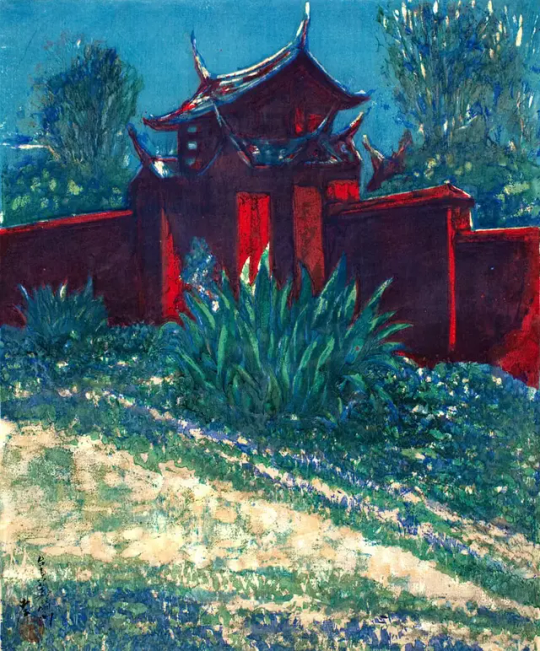
Side Gate of Confucian Temple in Tainan - Onchi Koshiro,1936.
Japanese , 1891-1955
Colour lithoraph , 38 x 47 cm.
111 notes
·
View notes
Note
Does Chinese philosopher Confucius have a Ryu number?

Confucius has a Ryu Number of 2.
260 notes
·
View notes
Text
i’m OBSESSED with this guy’s record of the handover of nanjing from ming to qing forces. he fully doesn’t care about the rampant corruption, he fully doesn’t care that the emperor has run away, he fully doesn’t care that qing forces have entered the city and taken control of the government, but DAMMIT QUEUES ARE SUCH AN UGLY HAIRSTYLE HOW COME I HAVE TO WEAR ONE THIS SUCKS I WONT LOOK GOOD
#like he really doesn’t seem that bothered by the confucian aspect of it all he just thinks they look really ugly#ryddles
33 notes
·
View notes
Text
re: jianghu as a queer space in mlc
here to answer @redemption-revenge !! in reply to this post
(also tagging @markiafc @ananeiah <3)
there are many definitions of jianghu, but this is specifically based on the framing of jianghu as the space people retreat to, away from the mainstream sphere governed by the imperial court. in that is a sense of rejection and defiance against the patriarchal, heteronormative values and norms, which had been enforced through a fixation on upkeeping order in the society. as such i guess it's not too much of a stretch to interpret jianghu as a queer space in a way that's characterised by a spirit of nonconformity to the norms. consequently, it makes sense for stories set in jianghu be used to illustrate and navigate queer identities/experiences/feelings - which I came to believe mlc had made really good use of.
there's always kind of a dichotomy between 江湖 jianghu and 庙堂 miaotang (ie. imperial court). like in mlc, there are two separate, distinct law enforcement bodies from the respective spheres - and jianghu strives to keep imperial court from interfering in their affairs. like how li xiangyi firmly stands against getting imperial court involved in jianghu matters. like how fang duobing is actively running away from the grip of the royal court on his life choices. the rejection of the mainstream (very conveniently and broadly put, confucian) norms in mlc also manifests in many of its key relationships being non-familial (in the sense of blood/marriage-based kinship) and there being little emphasis on the main characters' biological familial ties. (anyway this is for a whole different meta on its own... edit: it's here)
it's then actually a sort of irony that the imperial court's institution of law and order is what sigu sect/baichuan court had been formed to be a de facto counterpart to. so when li xiangyi becomes li lianhua, it triggered the process of deconstructing the meaning of installing such an institution and the need to maintain order to a fundamentally nonconforming space such as jianghu. mama fang's seemingly throwaway line of criticising li xiangyi and his mission is in fact the thesis statement in this particular reading of mlc's story: jianghu makes its own rules. nobody should dare to do it in its place.
now deprived of all means to fight like he used to, li xiangyi's new life as li lianhua is essentially a refresh of how he views jianghu. the death of li xiangyi the leader of sigu sect and top of wulin, meant taking apart the idea that jianghu is a lawless arena where the fittest fight to the top for power and control over wulin. and li lianhua then putting together lotus tower, living a life focusing on a domestic lifestyle this time for real far from the reach of the governance both from the imperial court and sigu sect/baichuan court, is him living the jianghu that's defined as a space away from any form of conformity.
with that, there's also a sense of queerness to this particular way of living as li lianhua, if you consider the chinese conceptualisation of gender being more social than biological. if femininity and masculinity were respectively characterised by inner/domestic sphere and external/any space outside of that, dare I say...it actually makes li lianhua's moving house mindblowingly smart as a metaphor for gender fluidity. lonely wanderers are common in wuxia but housed lonely wanderers? he carved for himself a domestic (ie. feminine) space in the wilderness - among a jianghu space that's still dominated by masculine values of aggression and competition. and being freely mobile makes this feminine space more fluid and less tied down than the more rigid, inert domestic, feminine spaces in traditional mainstream society. when you combine it with how his character has been fem-coded - even as li xiangyi (eg. yin-coded powers/energy) (also a whole other meta on its own... edit: it's here now), it speaks to a part of him that has always found appeal in qualities conventionally associated with femininity of stability, gentleness and non-aggression. and a rejection of expectations to fight and destroy. he is defining who he is in his own terms, in the true spirit of jianghu.
#莲花楼#mysterious lotus casebook#my posts#lhl#lhlmeta#jielin writes something#also ofc the queer reading wrt defiance against norms in the way of choosing jianghu extends to fdb (and dfs?) individually too#fdb. ace. in particular#this meta can go longer. so much more to be said. but i was committed to posting it before i go to bed#but i'll say here first that i think it's the femininity in lxy that is what precisely makes him an unparalleled swordsman. not in spite of#apologies if it doesnt make any sense or just going off tangents in general lol it's 2am#struggled supremely writing this. for hours i was mind to mouth.meme#i sound batshit insane by the last part but at least that idea had been somewhat peer reviewed by my lovely friends...........#mark and ana don't read though before yall finish the show#also this is what happens to ur brain when ur other media obsession is a hardcore confucian critique/deconstruction#of a royal court intrigue story
144 notes
·
View notes
Text
Sometimes I hate opinions 😡😡
Makes me more confused...

But, someone told me 👇

#fun facts#science facts#science#facts#funny memes#meme#interesting facts#humor#dank memes#tumblr memes#funny#memes#confused#confucianism
24 notes
·
View notes